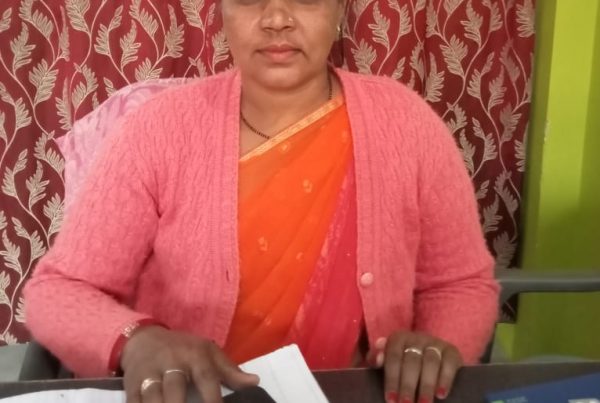Stassen Tea Estate, Sri Lanka
At Bio-Tea, part of the Stassen tea estate, women are walking shoulder-to-shoulder with men.
Sri Lanka has made significant progress in achieving several of its UN Millennium Development Goals pertaining to the eradication of extreme poverty, health, and education over the last couple of years. Although it is one of the few countries in Asia to have a favourable sex ratio for women, it still lags behind in gender equality. The gender gap in women’s access to power, inclusion in decision making, and leadership is significant in Asia including Sri Lanka where only 1.6% of women are elected representatives in rural councils. There are however some women who are making progress in their lives in remote parts of Sri Lanka. These are two such stories.
Brewing change
Bio–Tea is one of the Stassen Estate that sells 25% of its produce through Fairtrade marketing channels and has been a Fairtrade-certified tea estate since 2003. They have 550 workers, of which 50% are women. They received their first Fairtrade Premium in 2007 and have been awarded the Best Asian Premium Committee award. The implementation of Fairtrade standards over the years brought with it a wave of changes in the organisation.
The Company’s Freedom of Association protocol states that it agrees to give due care to promote the empowerment of women by means of adequate training, capacity building, guidance, encouragement, and assistance as necessary, and this is clearly reflected in numerous ways throughout the organization. Fairtrade Premium projects such as setting up sewing classes for women, bus project to facilitate transportation for the employees as well as for children to get to school, provision of books and shoes to children and more; apart from being helpful for the workers have also proven beneficial for the organization by reducing absenteeism and most importantly creating a feeling of trust between the workers and the management.
Francis, a management representative and Fairtrade Officer said, “Lalita and Ranjine are dedicated and sincere workers and we want to support such women by giving them more opportunities. Having women supervisors also helps in addressing issues specific to women as they feel more at ease in sharing their problems.”
Towards Equality: Lalita Inbarani
LALITA FINDS THERE’S MORE EQUALITY IN HER HOUSEHOLD NOW!
 Lalita Inbarani and her family remember May 12, 2014, with a particular fondness. It was the day that she was told about her promotion from tea plucker to supervisor. “My children were so proud of me that they came and met the management,” she said happily. “The respect with which everyone speaks to me now is overwhelming, including my husband.”
Lalita Inbarani and her family remember May 12, 2014, with a particular fondness. It was the day that she was told about her promotion from tea plucker to supervisor. “My children were so proud of me that they came and met the management,” she said happily. “The respect with which everyone speaks to me now is overwhelming, including my husband.”
Lalita Inbarani’s native village is Dambatenne, 17 kilometers from Bio Tea. Lalita moved here in 1998 when she got married. Her husband worked for the estate and she also started working on the estate as a tea plucker in 1999 to contribute to the household income. She is forty years of age and has studied up to class tenth. She is a member of the Fairtrade Premium Committee and a mother of three.
Lalita shared that there is a sort of equality she feels in her household now. In the beginning, when Lalita took up this role, it took time to gain the trust of other women tea pluckers, but soon she was able to bring them all together and address their issues. Lalita hopes to become a Fairtrade Officer and organise more trainings and awareness on innovative ways of the utilization of the Fairtrade Premium for higher grassroots impact. “It is because of Fairtrade that I have the opportunity to sit together with the management and workers at various forums to discuss our issues and how the Fairtrade Premium should be utilized as an equal,” she said. “Everything is decided democratically and it gives us a voice.”
Standing tall and free: Ranjine
RANJINE ASPIRES TO BECOME A FAIRTRADE OFFICER
 From 2004, Ranjine has been working as a tea plucker at the Bio Tea Estate. On March 11, 2011, she became a supervisor there. “I am extremely happy as I have a certain kind of freedom as well as support from my family,” she said. “Even the attitude of my neighbours and people around has changed and become positive after seeing my progress in my work”.
From 2004, Ranjine has been working as a tea plucker at the Bio Tea Estate. On March 11, 2011, she became a supervisor there. “I am extremely happy as I have a certain kind of freedom as well as support from my family,” she said. “Even the attitude of my neighbours and people around has changed and become positive after seeing my progress in my work”.
Ranjine is originally from Navalapitia which is three hours by train from the Bio Tea estate. When she got married her husband and family did not have a proper pucca house. Since one of the benefits of a job on the estate was two-bedroom housing, this prompted the family to seek jobs on the estate. Now her husband works outside the estate. For Ranjine, this was the first time she was working and found it difficult. But she says that their supervisors were supportive and helped them at every step.
Ranjine has three children and is passionate about educating them as she has studied only till class tenth. She feels education can play a pivotal role in the progress of her children in the future. Her eldest is a girl studying in class tenth, a younger boy who is in class ninth, and the youngest girl who is in class four. Rajnine too aspires to be a Fairtrade Officer in the estate.
Contributed by Harveen Kour



